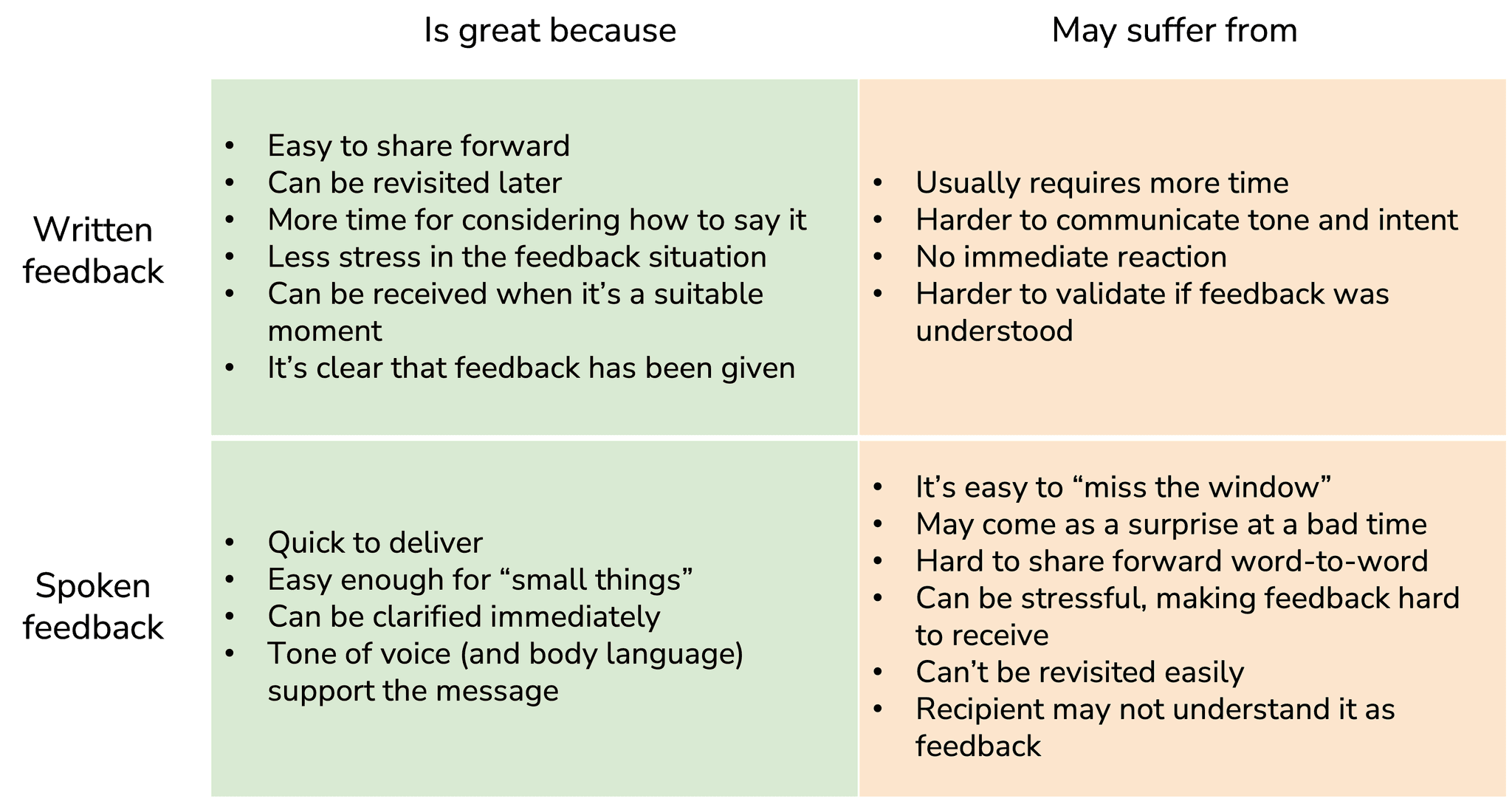Feedback is vital for both personal and professional development. But is it better to give feedback in written or orally? The truth is that both types are needed, just the ideal format depends on the situation and the people involved. In this article, we will go over when you might want to give written feedback and when spoken feedback might be a better option.
Both types of feedback have their pros and cons, so it’s wise to master both. For example, it’s a great idea to collect written feedback from colleagues and then process it in a 1-to-1 meeting with a manager or coach.
Emphatize with the recipient
Everyone has personal preferences when it comes to giving and receiving feedback, and those preferences might change depending on the situation. The way people prefer to discuss feedback may depend on a number of different factors, including:
- How comfortable the person is with having feedback discussions
- How psychologically safe the person feels with the person giving the feedback
- Whether or not the person is okay with receiving public feedback (if in a group setting)
- Whether they want an immediate reaction or more thorough feedback
- Whether or not they plan to keep the feedback for future reference
Remember, regardless of how the feedback is delivered, you always want to try your best to empathize and put yourself in the other persons' shoes.
Whether you’re giving spoken or written feedback, it’s important to be aware of the factors that can cause people to reject feedback. Always try to give clear, concise, concrete feedback and explain the impact of the other persons' actions and the desired future behavior. You can always rely on our recipe for perfect feedback.
When to give spoken feedback
There are certain situations when it’s almost always best to give spoken feedback, including under the following common circumstances:
- When you are giving immediate feedback, such as at the end of a meeting
- When someone asks you for feedback face-to-face, and you have something to share
- When you want to give feedback that is useful, but not so important that you’d take time to sit down and write it
- When it seems likely that your feedback can be misunderstood, or you need to clarify it
- When you’re worried about a lack of understanding between you and the other person
When to Give Written Feedback
Likewise, there are certain situations where written feedback is more helpful or otherwise necessary, such as under the following circumstances:
- When the other person has specifically asked for written feedback, or sent you a feedback request in written format
- When you need some time to think about what to say in terms of the feedback you’re giving
- When you need to ensure the feedback is delivered in a productive or easy to accept format
- When you want to develop your own skill at delivering actionable, constructive feedback
- When you want the other person to remember your feedback, or you want to follow-up on it later
- When you want the other person to be able to share your feedback to their manager or coach
Summary
Feedback is a critical source of information by which people grow and develop both personally and professionally. And as such, it's important to know how to give and receive feedback. It's useful to learn to give feedback in both spoken and written formats, but there are certain occasions when one method is better than the other.
Follow the cues from the other person and try to empathize with their perspective and preferences. It’s always beneficial to be aware of the factors that cause people to block feedback, and strive to give clear, concrete feedback that's delivered constructively and with empathy.


